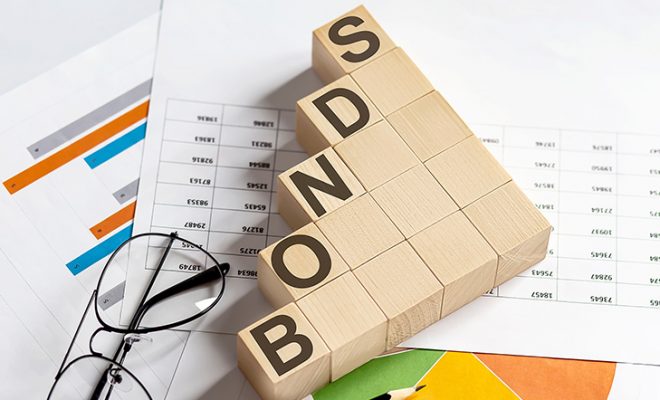Is 2 Million Enough to Retire Comfortably?

According to a 2020 survey, most participants think they would need at least $1.9 million to retire comfortably. In reality, for some people, $2 million might be more than enough to sustain them through retirement. While for others, this amount might barely meet their needs. This depends on the person’s financial and physical health, inflation, life expectancy, investment and asset choices, the standard of living, etc. Reach out to a professional financial advisor who can assess your financial situation and recommend investment strategies that can help you boost your savings and reduce your expenses and taxes. Doing so would allow you to create a significant retirement fund for yourself.
In this article, we will discuss if $2 million is enough to retire comfortably, based on one’s unique financial needs.
Is $2 million enough to retire?
$2 million may seem like a considerable sum of money. However, several factors need to be considered to ensure that your money lasts the remaining years of your life, no matter the corpus size. Below are a few factors that can help us determine if $2 million is enough for retirement or not.
1. Effect of Inflation
Inflation, which accounts for the general rise in prices, is arguably the most important factor to consider when planning your retirement corpus.
Inflation can significantly impact and reduce your retirement savings. The biggest mistake that individuals make is to consider inflation as a short-term phenomenon. But this is a flawed perception. Historically, inflation rates have only risen, and the US economy currently is witnessing a 40-year high inflation.
All your assets, investments, and retirement accounts can be impacted drastically due to inflation. No amount of money can be considered enough if your planning does not account for inflation. In the case of $2 million, inflation will devalue it in no time. The only way to tackle inflation is to diversify and add new revenue streams and use your savings carefully.
Though inflation adjustments are factored in for the money held in accounts like Social Security, these adjustments are not adequate. According to the Senior Citizen League, these benefits have lost at least 1/3rd of their purchasing power since the early 2000s.
2. Rising life expectancy
With the advancements in healthcare, the life expectancy of US citizens has increased. This is good news; however, retirees need to figure out ways to make their retirement savings last longer.
As the life expectancy increases, your expenditures and withdrawals will also increase. Due to this, the probability of you running out of money somewhere in the middle of your retirement also increases. Therefore, it is important to create a budget so that you can extend your savings beyond your average life expectancy. It is advised to cut down on frivolous expenses and work on improving your savings rate. Try and stick to your budget to ensure you do not outlive your savings and run out of money during the latter years of your life. There is also a possibility that $2 million may not be sufficient if you have made an error while making calculations.
3. Focus on creating a diversified investment strategy
Having a well thought out investment strategy can do wonders for your future retirement planning. Allocation of assets, timing of withdrawals from retirement accounts such as 401(k)s, IRAs, and having a well-defined estate plan can heavily impact your retirement years. Your investment style, risk tolerance, asset strategy, and allocation can be a good indicator to understand if $2 million will be sufficient for you to retire comfortably or not.
For instance, most retirees depend on fixed income sources. However, these income streams are subject to inflation risk, and you might lose a major chunk of your savings to market volatility or inflation. Here, you can consider products like fixed or variable annuities that act as a source of steady income for you. Focus on creating a balanced portfolio where you combine high-risk securities that offer high returns with zero-risk securities that generate low to average returns. If you carelessly manage your investments, $2 million may not seem a huge sum of money.
4. Try reducing your retirement expenses
To understand if $2 million is enough to retire, you need to have an overview of your expenses. You can take the help of retirement calculators to assess your retirement expenses. This can give you an overview of how much you can expect to spend in the coming years. According to a widely accepted rule, you may need as much as 80% of your current income in retirement.
Make a list of your future expenses and any additional costs that you may incur in the future such as unpaid mortgages, home renovations, sponsoring your grandchild’s education, and more.
Be careful how you spend your retirement corpus during your retirement years as it will directly affect your retirement corpus needs. For instance, many retirees indicate that their first-year expenses were more than what they had spent while employed.
If you are a conservative spender, $2 million may be a good sum of money that can be sufficient for your retirement years. However, if your retirement needs are not cost-effective, even $2 million may not help!
SPONSORED WISERADVISOR
5. Maintain your standard of living
It’s challenging to forecast future costs. To get a fair idea of how much money you’ll need during retirement, you may assess your current standard of living and use that as a base for calculating your future expenses.
Your standard of living is crucial in determining how much corpus will need to retire comfortably. For instance, if you wish to buy an expensive piece of real estate, go on a vacation to Europe, or are habituated to eating at expensive restaurants, then your retirement corpus can deplete faster than you may anticipate. In such situations, even $5 million may appear insufficient.
Also, if inflation increases during your retirement, with the loss of a steady income, you might find that your income is insufficient to maintain your living standards.
6. Account for medicare care costs
Retirees often ignore the effect of physical health on their financial life. As healthcare costs skyrocket, they can directly impact your retirement corpus. It is paramount that you factor in all health costs while planning and calculating your retirement budget. In addition, ensure that you buy relevant insurance plans for healthcare, long-term care, and accidents. Any million-dollar corpus could quickly drain if your physical health is not accounted for when planning your retirement.
For instance, assume you have to settle large medicare bills and have a portfolio worth $2 million. With high medicare costs and rising inflation, the fund may quickly exhaust. In fact, you may even struggle to make your savings last through your retirement.
7. Work on reducing your taxes
All major investments, from estate and stocks to retirement accounts such as401(k)s, IRAs, etc., attract taxes of various kinds. These taxes can cause a significant dent in your retirement corpus. For instance, if your income adds up to $40,000 a year, you will fall in the 12% tax bracket. However, if the income increases to $40,600, you will be taxed at 22%. The additional $600 will push you to the next tax bracket altogether. Hence, it is critical that you factor taxes while planning for retirement.
Assume that a person retires on January 1st, 2022, and the average life expectancy of the person is 95 years. Let’s also assume that the portfolio mix stands at 60% stocks and 40% bonds. If this person withdraws $3,000 per month from the savings fund – $2 million in this case (beyond the income from pensions, social security, etc., ) then the probability of $2 million lasting through retirement would be around 96%, according to the Monte Carlo simulation.
However, if the withdrawal increases to $4,000 per month, the probability will decrease to 87%. If you further increase your monthly withdrawals to $5,000, the probability would further decrease to 69%. Hence, if you increase your monthly withdrawals (from your retirement savings), the probability of the money lasting through the retirement phase will keep decreasing, and you may struggle to manage your expenses.
Making $2 million last through retirement
The important thing here is to find out how you can stretch your $2 million corpus to last through retirement. Questions like ‘is $2 million enough to retire at 55?’ or ‘is $2 million enough to retire at 70?’ hold no meaning if the aforesaid factors are not accounted for.
Many people depend on their social security income and pension to fund their retirement. However, if you want your $2 million to last, it would be wise to look for additional passive sources of income. It would also help if you got in touch with a financial advisor who can guide you on how to use your money wisely. Additionally, you can also invest in whole life insurance, where the cash value accumulates and increases over time. Even income annuities are an excellent way to establish an additional source of income.
It can be challenging to make $2 million last in times of soaring inflation, medicare costs, and soaring taxes. However, if planned correctly, it is doable and something that can be achieved.
To conclude
Early retirement planning can play a huge role in amassing a significant retirement fund. If you start saving from a young age, you can not only tackle factors like inflation, taxes, medicare costs, and more, but also harness the power of compounding to your benefit. You should consider the effects of inflation, rising taxes and healthcare premiums when planning for retirement and building an emergency fund. Whether $2 million or 200k, it is paramount that you understand the various factors that come into play during retirement. Consult your financial advisor before making any major financial decision.
Use the free advisor match tool to match with an experienced and certified financial advisor who will be able to guide you effectively on different kinds of retirement plans and how to build a substantial retirement corpus for your golden years. Give us basic details about yourself, and the match service will connect you with 1-3 professional financial fiduciaries that may be suited to help you.











